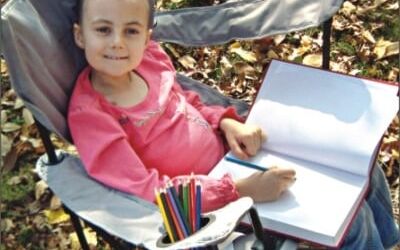About 1 in every 600 children develops cancer before they reach the age 15. The cause behind childhood cancer is still relatively little known. But the overall cure rate for childhood cancer has significantly improved over the last 2 decades in association with clinical trials and the development of new treatments.
Compared to adult cancers, childhood cancers tend to have different characters and occur in different sites of the body. Common adult cancers such as lung, breast, colon and stomach are extremely rare among children. On the other hand, certain cancers are almost exclusively found in children, especially embryonal tumours which arise from cells associated with the foetus, embryo and developing body inside the mother’s womb.
Cancer takes a child’s strength, destroys organs and bones and weakens the body’s defense against other illnesses. Among all age groups, the most common childhood cancers are leukemia (cancer of white blood cell), lymphoma (cancer of special body liquid lymph forming cells) and brain cancer. As children enter their teen years, there is also an increase in the incidence of osteosarcoma (bone cancer). The sites of cancer are different for each type, as are treatment and cure rates.
Signs
• Continued, unexplained weight loss
• Headaches, often with early morning vomiting
• Increased swelling or persistent pain in bones, joints, back or legs
• Lump or mass, especially in the abdomen, neck, chest, pelvis or armpits
• Development of excessive bruising, bleeding, or rash
• Constant infections
• A whitish color behind the pupil (need to be distinguished from childhood cataract by an ophthalmologist)
• Nausea which persists for a long time or vomiting without nausea
• Constant tiredness or noticeable paleness
• Eye or vision changes which occur suddenly and persist for a long time
• Recurrent or persistent fever of unknown origin
We should observe our child for any sudden, persistent changes in health or behaviour as listed above. Since most of the signs/symptoms of cancer can also be attributed to benign conditions, the diagnosis of cancer can be a long process. You must trust your own instinct and work as a team with your doctor.
One important message we should keep in mind that early diagnosis is the key to win over cancer. It is difficult to treat cancer once it spreads other parts of the body.
The writer is an Assistant Registrar, Department of Paediatrics, Dhaka Medical College Hospital (DMCH).
Dr Abu Sayeed Shimul
Source: The Daily Star, February 13, 2010






Leave a Reply